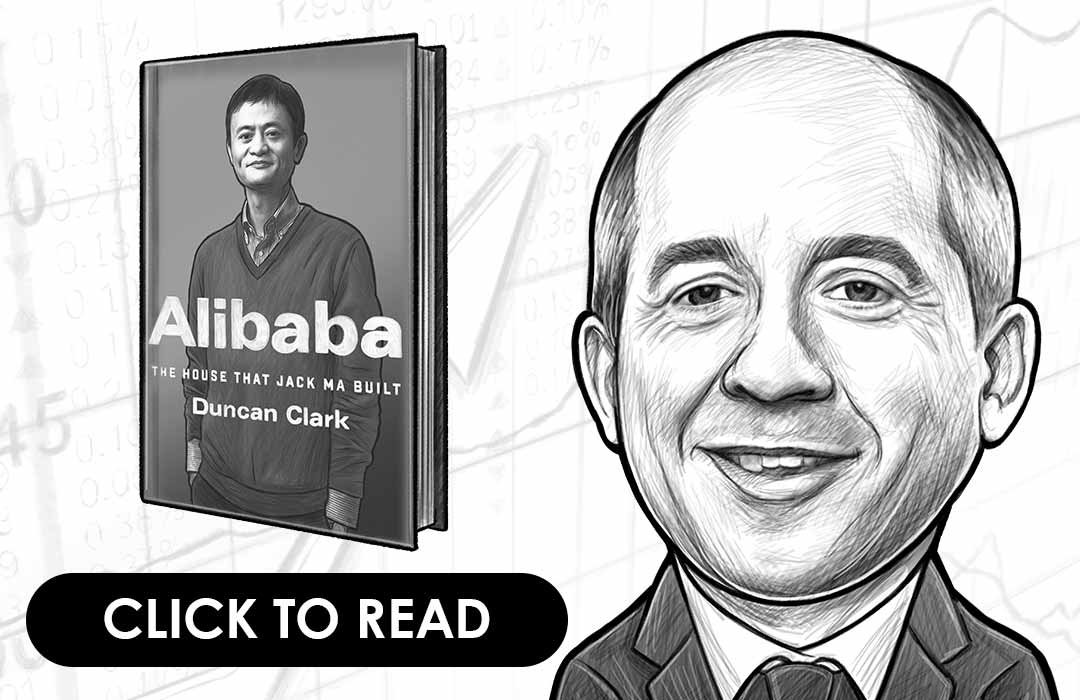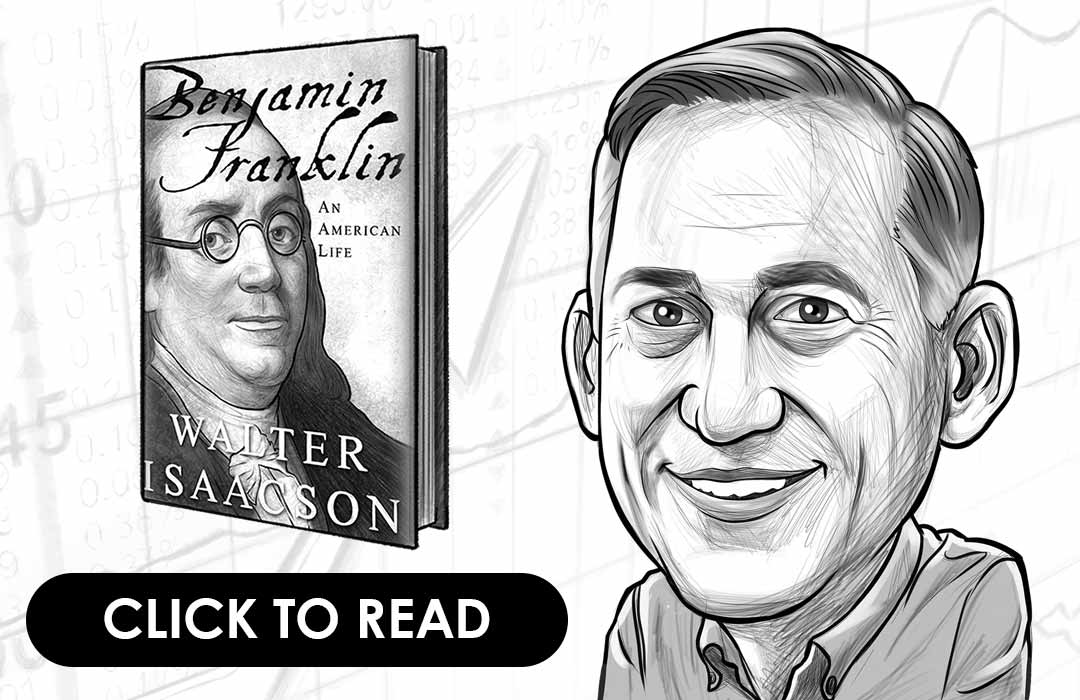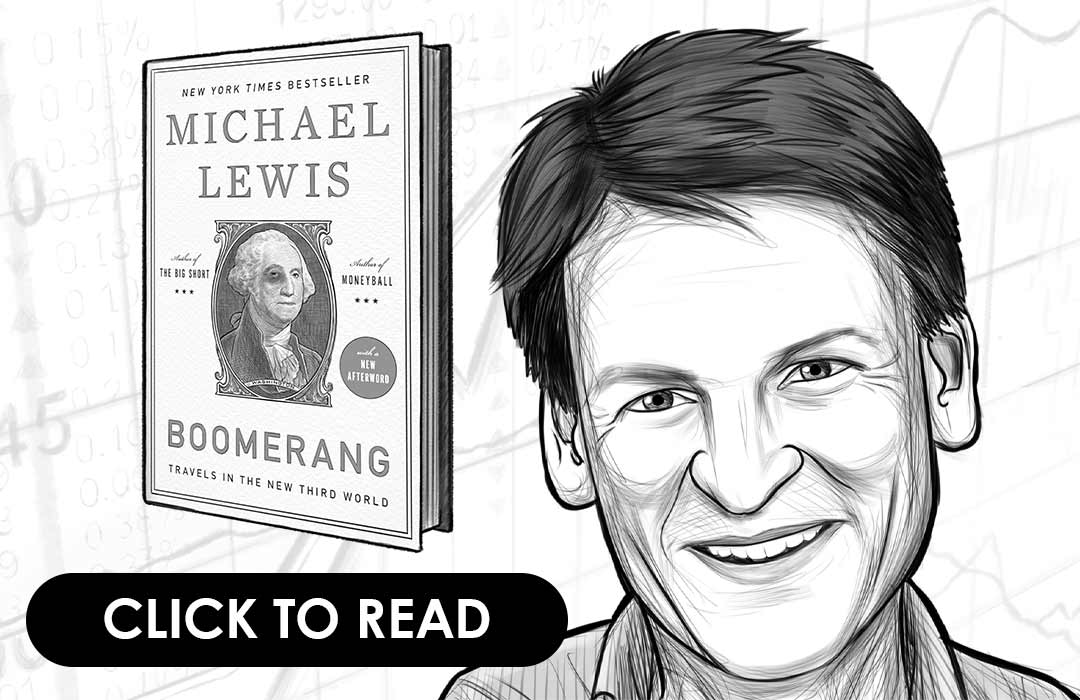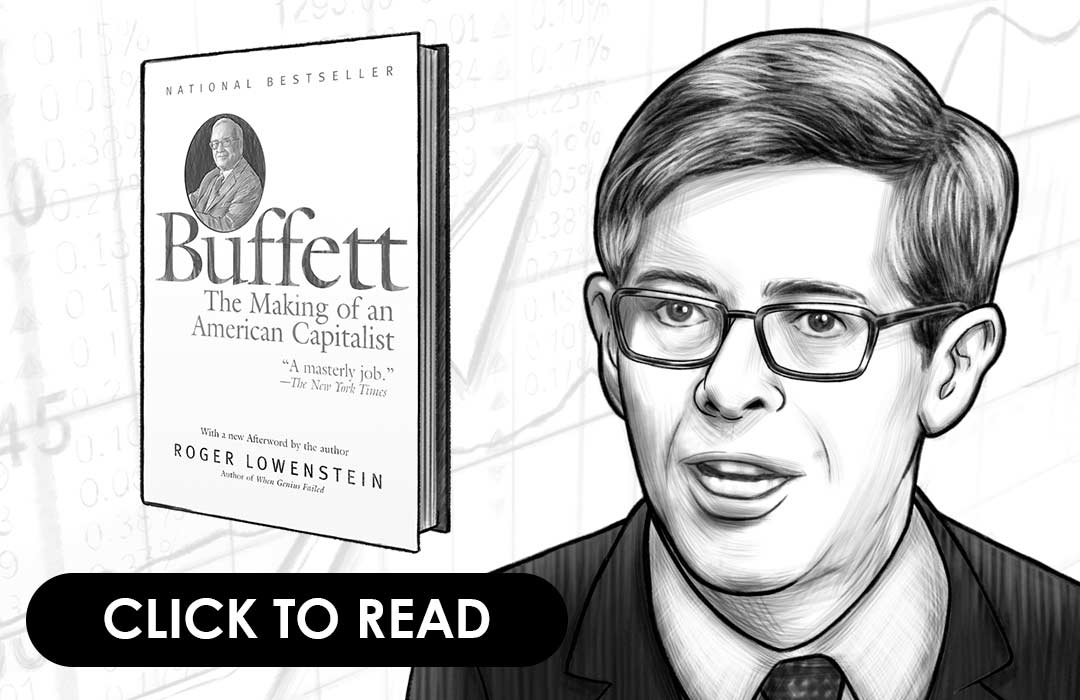An Executive Summary Of Winning
By Jack Welch
WHO IS JACK WELCH?
Jack Welch was born on November 19, 1935 and is a retired business executive, chemical engineer and author. As one of the most sought-after American CEOs of the world, Welch was the chairman and CEO of General Electric from 1981 to 2001. Under his tenure, GE’s value rose by 4000%, and when he retired, he received a severance pay of $417 million. Welch’s wealth was estimated to be about $720 million in 2006. Read on to know more about Welch’s passion for winning, regardless of what life throws his way in the book: Winning.
PRESTON AND STIG’S GENERAL THOUGHTS ON THE BOOK
If you want to learn how to move from a low-level position in an organization up to the top management position, this is the book for you! On the other hand, if you want to live a balanced life and get more family time, this might not be the best read.
As you can tell I’m really torn about this book. On one hand, Jack provides a great recommendation on the actions a leader needs to take to climb the corporate ladder. At the same time, much of the advice is teaching a person how to fit into the mold of the typical business executive. Unlike most books we read, Jack Welch wasn’t the founder of a business that went‐on to create an innovative product or service. Instead he has mastered the life of working hard as an employee and business manager. One of the reasons I did like this book is for his thoughts on leadership. If there’s one thing Jack gets, it’s the fundamental principles of what makes a great leader. If you’re looking for a book to sharpen your business acumen, this is a great read. We selected this book because it came highly recommended by billionaire Warren Buffett, but it was probably a 7 out of 10 compared to other business books we’ve covered.
Understand the financial markets
in just a few minutes.
Get the daily email that makes understanding the financial markets
easy and enjoyable, for free.
CHAPTER 1: MISSION AND VALUE – SO MUCH HOT AIR ABOUT SOMETHING SO REAL
True to his style, Welch gets right to the point in the first chapter. He talks about how words like “mission” and “values” are overrated and misunderstood in business. An effectual mission statement will primarily answer one question – How do you plan to win in this business? This question alone can help companies figure out how to prevent pitfalls and understand their weaknesses and strengths to strive forward effortlessly. It’s about balancing the possible and the impossible. Most companies forget their mission statements and deviate from their plans only to encounter disaster in the future. Therefore, defining a real purpose or mission must be of prime importance for the company, and even if it takes time, the result will be worth it.
CHAPTER 2: CANDOR – THE BIGGEST DIRTY LITTLE SECRET IN BUSINESS
Welch has always spoken about the significance of candor, especially in a work environment. Many executives refuse to disagree with their superiors and don’t voice out their opinions at the right time. In the process of maintaining a perfect appearance, they forget that this lack of candor can be irreparably damaging to the company. A company that doesn’t encourage honesty need not worry about outside competition since it’s already heading towards failure, thanks to its internal inadequacy. On the other hand, however, candor not only brings people together, but it also motivates them to find solutions faster. Also, it reduces costs and increases speed while helping organizations solve problems productively.
CHAPTER 3: DIFFERENTIATION – CRUEL AND DARWINIAN? TRY FAIR AND EFFECTIVE
With an organization’s limited managerial time and budget, Welch recommends differentiation – a process where a company supports the mighty and culls the weak. Although many people argue it’s immoral and harsh, Welch asserts that it can transform businesses dramatically. In other words, it is resource allocation, and leaders should be more than willing to adapt to this if they want their companies to be successful. It shouldn’t be misunderstood because it’s just another way to manage businesses and people. If companies can distinguish employees as the top, middle and bottom performers, they can focus on quality. While the best employees are rewarded generously, the bottom performers will have to leave, no matter how bad it sounds. This technique helps companies to advance at high speed without any hindrances.
CHAPTER 4: VOICE AND DIGNITY – EVERY BRAIN IN THE GAME
In this section, Welch talks about voice and dignity – something we all want. No matter where or what we do, we all want our voices to be heard. We also want to be respected for our efforts. Companies that don’t allow voices to be heard aren’t heading in the right direction since this blocks people from engaging in anything passionately. GE, on the other hand, encourages people to voice their opinions through the “Work‐Out” process where employees meet regularly to eliminate bureaucracy and find better solutions.
CHAPTER 5: LEADERSHIP – IT’S NOT JUST ABOUT YOU
Here, Welch talks about leadership and its effects on people. Whether you’re in politics, sports, or a manager in a company, becoming a leader will mean that you have to think more about others than yourself. Before an individual becomes a leader, he can think about his own success, but once he begins to lead others, he has to evaluate, coach and help others build their self-confidence. A leader has to ensure that others see his vision by making it come alive. Leaders will also have to be transparent with their counterparts and build trust within people, thereby ensuring that the business runs smoothly.
CHAPTER 6: HIRING – WHAT WINNERS ARE MADE OF
A company can have the best ideas, but without great people to execute them, it’s just worthless. Hiring good people is extremely challenging, but there’s nothing greater than that in any organization. Welch suggests three acid tests – integrity, intelligence, and maturity – in the hiring process to identify whether an individual is worth hiring or not. He also recommends the 4E framework to hire people that make a winning team. After the person in question is tested for 4E – Energy, Energize others, Edge, and execution – you can then test him for his passion.
CHAPTER 7: PEOPLE MANAGEMENT – YOU HAVE THE RIGHT PLAYERS, NOW WHAT?
Once you’ve got the best players in your company, you now need to make sure that they are motivated enough to stay in the enterprise while improving their performance. To put it short, you now need to manage them, and that’s what people management is all about. It boils down to six practices that include 1) Elevating HR to positions where they have the freedom to help others 2) Using a non‐bureaucratic system that monitors integrity 3) Creating mechanisms that retain and motivate people 4) Facing charged relationships – unions, sliders, and disruptors – without fear 5) Treating the middle employees well and not taking them for granted and 6) Designing a flat org chart that defines responsibilities clearly.
CHAPTER 8: POWER
The director of Human Resources is just as important and should be seen as equal to the CFO, probably the second-highest position in power. Good HR people are one part pastors who listen to your complaints without judgment, and one part parents who love the nurtures but gives it to you fast and straight when you are off track. If your company is managing people well, it tightly aligns good performance with rewards. The better you do, the more you get, and you get it in both the soul and the wallet.
A winning company just does not let good people walk out the door, for lack of recognition, financial, or otherwise. Mistakes when firing by managers: Firing too quickly, firing too slowly, and not having enough candor.
CHAPTER 9: CHANGE – MOUNTAINS DO MOVE
There’s a lot of talk about change and Welch admits that it’s something that’s definitely a critical part of any business. However, we are all resistant to change. Therefore, one needs to follow four practices that support change, and it includes 1) Attaching change with a clear goal that makes people understand why it’s occurring in the first place 2) Hiring true believers who can genuinely embrace changes 3) Getting rid of people who resist even if they perform well and 4) Expecting unpredictable events and preparing ahead while grabbing opportunities when they come your way.
CHAPTER 10: CRISIS MANAGEMENT – FROM OH-GOD-NO TO YES-WE’RE-FINE
Crises can sometimes consume companies completely, but it’s also something that occurs in every company no matter how prepared they are. Since the crisis varies, companies can’t set rules to overcome them. However, they can be prevented. Firstly, a tight setup with a strict discipline in accounting, financial areas, and external and internal auditing processes must be enforced. Secondly, a company must be crystal clear about their policies, and this must be shown during their hiring procedures, performance reviews and training programs. Thirdly, the organization must focus on creating an environment that encourages integrity, honesty, and transparency above everything else.
CHAPTER 11: STRATEGY – IT’S ALL IN THE SAUCE
Experts and gurus talk about strategies as if it’s rocket science. For a company to succeed, it’s important to understand that strategies don’t need to be complex since straightforward plans work just fine. It’s an iterative process that doesn’t need to be frequently changed if it’s regularly updated. Welch says that the first step is to identify a quick way to gain competitive advantage – a big aha for your business, as Welch calls it. Secondly, hire the right people in the right positions to take this advantage forward. Thirdly, be relentless while trying to achieve this advantage and adapt to them while improving them continuously.
CHAPTER 12: BUDGETING – REINVENTING THE RITUAL
Most companies make their budgeting processes extremely troublesome for everyone involved. Financial planning is essential, but Welch disagrees with the way it’s done. He urges companies to adopt a new way that not only improves growth but also inspires people. Firstly, companies need to question themselves as to how they can beat the previous year’s performance. Next, they need to identify competition and seek solutions to overcome them. If these two questions are asked, then it can pave the way for both parties – headquarters and field members – to engage in discussions that will focus more on opportunities and obstacles. This flexibility will not only motivate people, but it also allows company members to free themselves from budget rules that eventually become irrelevant due to market conditions that always change.
CHAPTER 13: ORGANIC GROWTH – SO YOU WANT TO START SOMETHING NEW
One of the most exciting and exhilarating things that can happen to a business is its organic expansion. It’s always great to give a new chance to a venture, but it isn’t that easy since companies make the mistake of ignoring their promises and limit the growth of start‐ups. Welch therefore suggests that organizations needs to follow three guidelines to avoid these mistakes and they include a) Spending money upfront and hiring passionate people as leaders b) Creating awareness about the start-ups by talking about them even if you aren’t very comfortable with it and c) Allowing the start‐up to venture out on their own to gain more experience.
CHAPTER 14: MERGERS AND ACQUISITION – DEAL HEAT AND OTHER DEADLY SINS
Mergers often come with a lot of elation, but veterans will tell you that the battle has only begun for both the acquirer and acquired. The buyer is usually worried about the loads of work that lay ahead of them, and the acquired is more nervous because of the layoffs and adjustments that go hand in hand with mergers. Acquisitions spell a faster, profitable growth and also provide opportunities for new customers and products, but they can still fail if it isn’t handled properly.
CHAPTER 15: SIX SIGMA – BETTER THAN A TRIP TO THE DENTIST
Six Sigma is an effective program that not only helps you improve your customer’s experience, but you can also lower your costs at the same time. Additionally, it also refines the design processes and makes your company more competitive. But, the most important benefit is that it develops great leaders who can lead the company in the best way possible. However, although it is really effective, many companies don’t adopt this program at their own peril. While it can be rewarding and fun, it’s important to note that it can also cause confusion and anxiety if it isn’t done right.
CHAPTER 16: THE RIGHT JOB – FIND IT AND YOU’LL NEVER REALLY WORK AGAIN
When it comes to careers, it’s almost impossible to determine where our job will take us. Since money can’t be disentangled from the equation, we need to figure out as to how much money really matters to us. So how do you ensure that a job is perfect for you? Right from your colleagues to your opportunities, options, and ownership, everything matters. For instance, if your sensibilities differ from that of your colleagues, you’ll find that you’re faking it just to get along. Also, if you take up a job just to please your parents, friends or somebody else, it’s unlikely that you’re going to be satisfied with what you’re doing.
CHAPTER 17: GETTING PROMOTED – SORRY NO SHORTCUTS
In this chapter, Welch talks about promotions after you find the right job. He admits that luck does play a role in our careers, but over the long run it plays a much smaller role when compared to other factors. So, to get a promotion, you need to work hard and deliver time and again since your performance will speak for you. However, don’t develop a career lust that can put off your colleagues. Also, don’t be that person who takes credit for someone else’s work. There are quite a few dos and don’ts, but above all, you must never let any setbacks push you back.
CHAPTER 18: HARD SPOTS – THAT DAMN BOSS
Just like how great bosses can make you feel confident and be your teacher, inspiration, and friend, a bad boss can kill your positivity and drain you in a way you’d never imagined. There are no perfect answers since all bosses are unique, but one thing you need to remember is that you can never be successful while being a victim to your boss since it can hurt your self-esteem.
CHAPTER 19: WORK, LIFE, BALANCE – EVERYTHING YOU ALWAYS WANTED TO KNOW ABOUT HAVING IT ALL
When it comes to managing your work and life at the same time, it comes down to one thing – your priorities. It’s about choosing what you want to sacrifice or keep. Remember, you’ll also have to live with the consequences once you make your decision, and although it sounds simple, it’s also very complex. All our choices are unique, and we need to make them according to the situation, but you also need to understand the reality before you make any decisions.
Understand the financial markets
in just a few minutes.
Get the daily email that makes understanding the financial markets
easy and enjoyable, for free.
CHAPTER 20: TYING UP LOOSE ENDS – HERE, THERE, AND EVERYWHERE
Welch wrote this book primarily to answer the questions that he’d received from people all around the globe. He has covered many topics including hiring, career, leadership, voice, differentiation, and a lot more, but this chapter addresses questions that don’t fit into any particular category.








